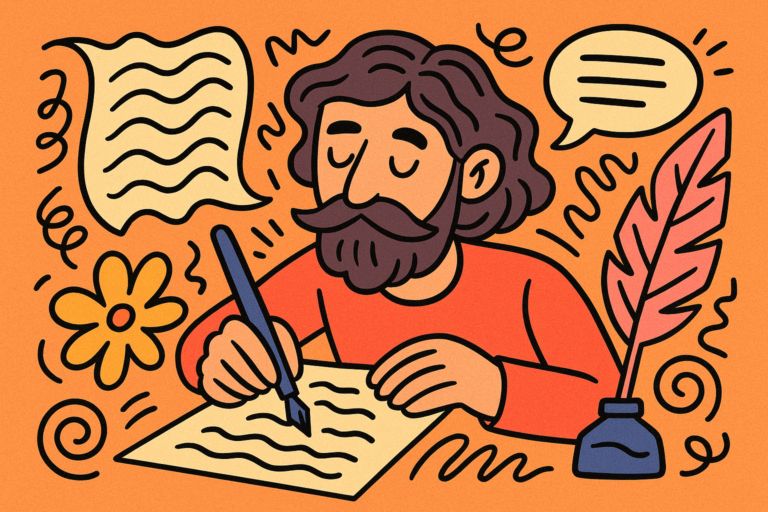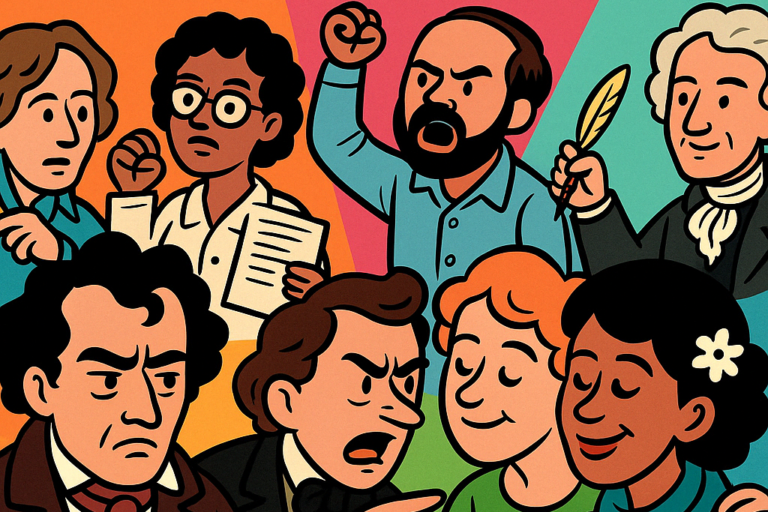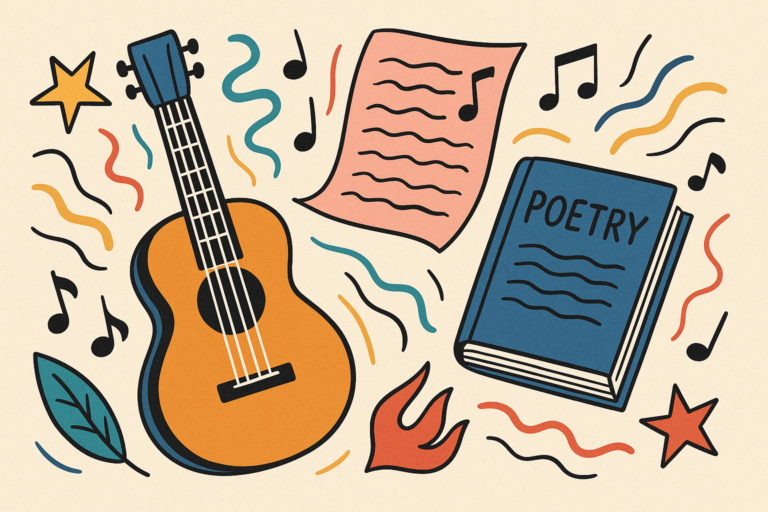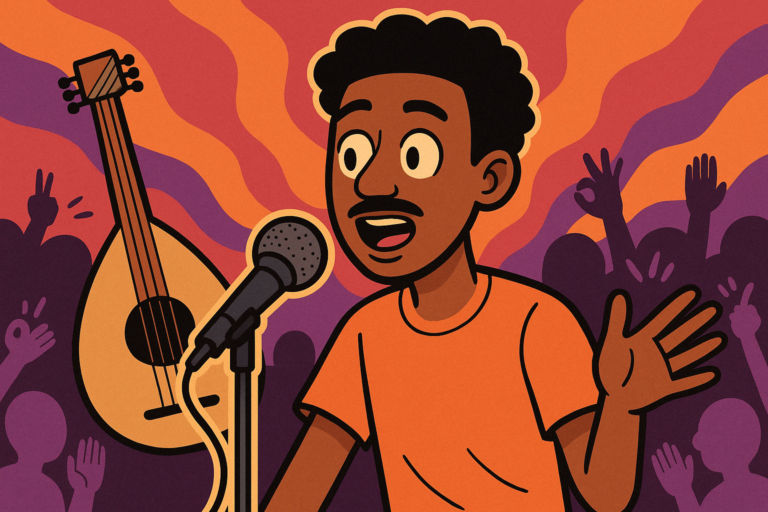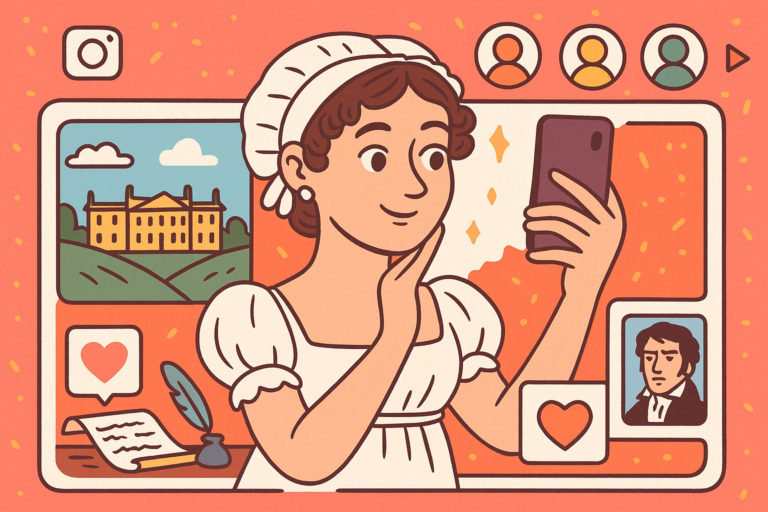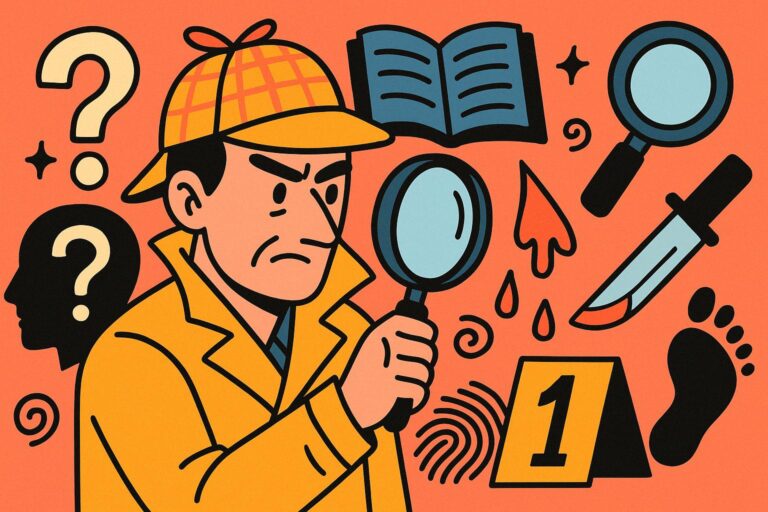What Your Favorite Genre Says About Your Future
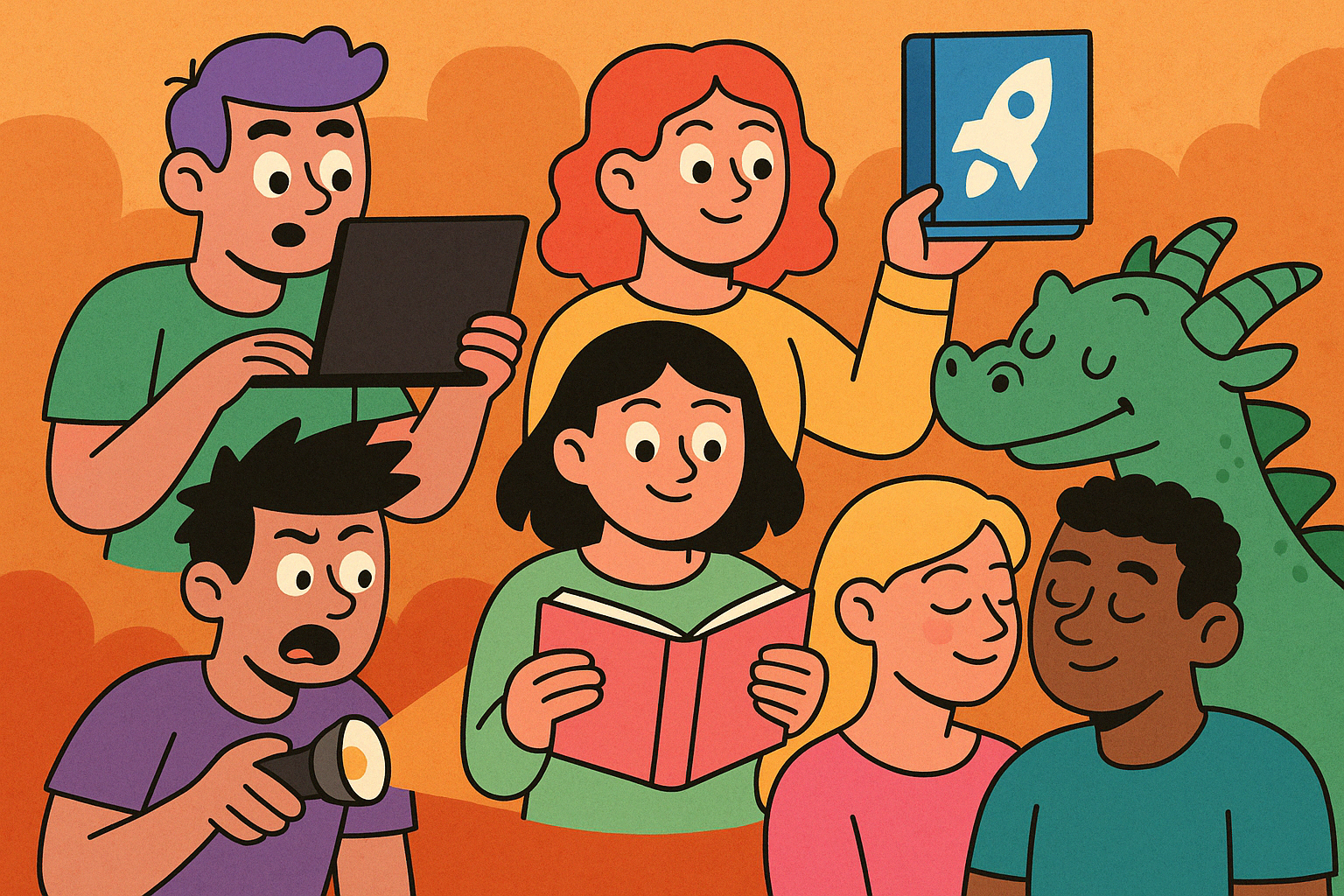
Here’s something I didn’t expect to find while diving into genre preferences: the stories we’re drawn to might actually hint at how we’ll shape our futures. And I don’t mean in some vague horoscope way—I’m talking about personality patterns, risk tolerance, cognitive style, even career direction.
There’s some legit psychology behind this.
Studies on narrative identity suggest that we don’t just consume stories—we build ourselves through them.
And when you consistently reach for dystopian thrillers or slice-of-life dramas, that’s data. Preferences like these can reveal how someone processes uncertainty, relates to others, or even what kind of leadership style they might adopt.
This blog isn’t about pop psychology, though.
I’ve pulled from media psychology, decision theory, and even a little narrative neuroscience to unpack how genre works like a mirror—and sometimes, like a map.
Ready to dig in?
Genre as Identity Architecture
Here’s the thing I kept running into while researching: our favorite genres don’t just reflect who we are—they subtly train us to become a certain kind of person.
Let me explain.
Genre acts as a kind of narrative framework that reinforces specific emotional patterns, worldview assumptions, and problem-solving habits.
That’s not just theory—it’s backed by research in media psychology and even some work in cognitive behavioral science. Think of genres as behavioral rehearsals.
Take science fiction, for example.
People who are drawn to speculative futures tend to score high in openness to experience and systemic thinking.
They’re often comfortable with ambiguity and tend to see change not as a threat but as a puzzle. One study I found even showed a correlation between sci-fi fans and interest in STEM or philosophy—fields where uncertainty is the norm.
On the flip side, fans of mystery and true crime often crave narrative resolution.
They’re usually analytical, detail-focused, and drawn to pattern recognition. It’s not a stretch to imagine many of them ending up in law, cybersecurity, or other logic-heavy roles.
There’s even data showing these genres appeal more to people with higher conscientiousness scores.
Romance fans?
Now this one’s fun. People who read a lot of romance tend to be high in empathy, but what surprised me was the link to future relationship stability.
Some psych researchers argue that repeated exposure to emotional nuance and relationship navigation in fiction might train the brain to handle real-life conflict better. Not saying reading romance makes you a better partner, but… it might not hurt?
And don’t get me started on horror.
The folks who love horror tend to be more sensation-seeking and have an unusual tolerance for negative emotion—what researchers call “benign masochism.” What’s wild is that this often translates to real-life resilience. Some preliminary studies even suggest horror fans coped better during the early days of the pandemic. Maybe all that zombie training wasn’t for nothing.
So, yeah. Genre preference isn’t just taste—it’s identity architecture. We’re not just watching or reading passively; we’re picking story patterns that align with how we want to be.
And over time, those patterns can shape how we think, feel, and respond to the real world.
And here’s the kicker: most of us do this unconsciously.
Cool, right?
Forecasting Your Trajectory Based on Genre
So now that we’ve set the stage with genre as identity architecture, let’s get into the juicy stuff: what your favorite genre might actually be saying about your future.
I broke it down into categories, and what’s fascinating is how clear some patterns start to look when you put these side by side. Again, this isn’t fortune-telling—but there are strong tendencies here.
Let’s dig in.
1. Science Fiction
Key Traits
- High tolerance for ambiguity
- Systems-level thinking
- Curiosity about technology and ethics
- Openness to abstract thinking
What It Might Predict
- Innovation, entrepreneurship, futurism
- STEM careers, especially AI, bioengineering, and space sciences
- Activism or policy-making around climate and tech ethics
If sci-fi is your comfort zone, you’re probably someone who doesn’t just accept the world as it is—you’re more interested in how it could be. This genre often attracts people who are willing to suspend current limitations to imagine new structures. Think Elon Musk, Octavia Butler, or the hundreds of AI researchers who admit they were inspired by Star Trek.
Interestingly, many sci-fi lovers are drawn to complex systems—whether in coding, economics, or philosophical frameworks. You might notice that these folks are also more comfortable with risk, because they’re already mentally living in the future.
2. Mystery/Crime
Key Traits
- Attention to detail
- Pattern recognition
- Logical processing under pressure
- High conscientiousness
What It Might Predict
- Legal, forensic, or law enforcement careers
- Strategic consultancy or operations
- Data analytics or investigative journalism
If you’re someone who thrives on a good whodunit, you likely find satisfaction in structure. Mystery and crime genres teach us to prioritize information, isolate noise, and draw conclusions—all very useful outside the world of noir fiction.
There’s also a tendency here toward justice sensitivity. Many true crime fans I spoke with had a deep interest in social justice, legal reform, or ethical questions around punishment and rehabilitation. This isn’t just casual entertainment—it’s training in moral complexity.
3. Romance
Key Traits
- High emotional intelligence
- Optimism and idealism
- Relationship orientation
- Sensitivity to nuance in social dynamics
What It Might Predict
- Careers in counseling, education, or human resources
- Success in emotionally-driven leadership roles
- Strong interpersonal networks and long-term partnerships
Romance often gets dismissed as “light,” but let’s be honest: navigating human relationships is hard, and romance readers are basically getting reps in emotional literacy. There’s even some emerging research that ties regular consumption of romantic fiction with higher empathic accuracy.
Professionally, romance lovers often find themselves in roles where people-skills and intuition are prized. They also tend to be driven by emotional meaning and seek work that feels purposeful—more than just financially rewarding.
4. Horror
Key Traits
- High sensation-seeking
- Resilience to stress and uncertainty
- Fascination with moral boundaries
- Comfort with the taboo or unexplained
What It Might Predict
- Work in emergency services, crisis management, or trauma counseling
- Roles in entertainment, particularly storytelling and worldbuilding
- Interest in social psychology, religion, or existential studies
You know who thrives in horror? People who can face chaos without shutting down. Horror forces you to explore the extremes of fear, grief, isolation, and mortality—but in a controlled environment. That’s incredibly powerful psychological training.
Some psychologists now argue that horror fans may build stronger coping mechanisms, especially in times of real-world crisis. And they’re not just adrenaline junkies—many horror aficionados I spoke with were deeply analytical about morality, ethics, and the “monster within.” These folks often find purpose in exploring dark truths others avoid.
5. Fantasy
Key Traits
- Idealism
- Visionary or leadership potential
- Rich inner world and strong moral compass
- Drive to build or lead toward a bigger purpose
What It Might Predict
- Creative fields: writing, art, game design
- Leadership in mission-driven organizations
- Roles involving culture, innovation, or systems change
Fantasy isn’t just dragons and chosen ones—it’s about imagining better worlds, and often, about rebuilding broken ones. If you’re a fantasy fan, you’re probably someone who gravitates toward symbolism, purpose, and scale.
This genre tends to appeal to future founders, change-makers, and visionaries—people who want to make something that didn’t exist before. A fantasy lover in middle school might turn into an NGO founder, a political activist, or the CEO of a disruptive startup.
6. Documentary/Nonfiction
Key Traits
- Inquisitiveness
- Grounded thinking
- Evidence-driven mindset
- Desire for truth and clarity
What It Might Predict
- Journalism, academia, or research
- Policy-making or NGO work
- Fact-based content creation or education
If you’re constantly binging docs, you’re likely someone who wants clarity in a chaotic world. You’re not satisfied with fiction—you want facts. And not just for the sake of knowing, but for applying that knowledge in real ways.
These people often become information synthesizers—the ones others rely on to “make sense of things.” You’re likely analytical, socially aware, and deeply interested in real-world impact.
The Future and Emerging Trends
So far, we’ve looked at genre preferences as relatively fixed indicators of personality and trajectory—but here’s where it gets trickier: we’re not static consumers anymore.
Thanks to algorithm-driven platforms like Netflix, TikTok, and Spotify, we’re often nudged into genre blending—even when we don’t consciously seek it out. A sci-fi fan might end up watching a sci-fi-romance.
A horror lover might binge a horror-comedy with satirical elements. And over time, these hybrid genres aren’t just shaping our tastes—they’re reshaping how our brains process stories.
And that changes the game for prediction.
1. Hybrid Genres – Personality Mirrors or Algorithmic Artifacts?
Let’s take the horror-comedy genre as an example. People who are drawn to it tend to have high emotional regulation, but they also process fear differently. The humor acts as a cognitive release valve, making the fear digestible.
But is that preference coming from a personality trait—or did an algorithm decide we’d click on it and now we like it?
That’s a serious question when trying to link genre to life outcomes. What we consume may be less about who we are, and more about what machine learning thinks we want.
2. Genre Fluidity as a Sign of Psychological Evolution
That said, how your preferences shift over time might be even more telling than what they are right now.
For example, someone who moved from fantasy to literary fiction might be transitioning from external worldbuilding to internal reflection. A person who starts with thrillers and gradually prefers documentaries might be gaining a deeper need for grounded insight.
Tracking this evolution is like looking at a psychological growth chart.
- Fantasy → Nonfiction: Idealism grounding into realism
- Romance → Crime: Shift from emotional safety to cognitive stimulation
- Sci-fi → Horror: Curiosity expanding into existential territory
So maybe genre isn’t a static marker—it’s a dynamic metric. Almost like a mood ring for long-term life changes.
3. The Limits of Prediction
And of course, no system is perfect.
People can love romance novels and still end up in data science. Someone obsessed with horror may never want to work with trauma in real life. And genre preference alone doesn’t account for cultural background, access to media, or neurodivergence—all of which shape how and why we engage with content.
But here’s what I’ve noticed: when genre preference is paired with behavioral patterns, it becomes a pretty compelling data point. Not definitive, but directionally meaningful.
And in a world that’s increasingly noisy, that kind of insight is gold.
Wrap-Up
So yeah—your favorite genre isn’t just a vibe. It’s a clue. Maybe even a compass.
We’re not just watching or reading stories; we’re subconsciously rehearsing futures through them.
And while we might shift, blend, or evolve our tastes over time, the patterns are still there, quietly sketching out who we’re becoming.
Kind of wild, right?
Anyway, if nothing else, maybe now you’ll look at your Netflix queue a little differently. I definitely do.
